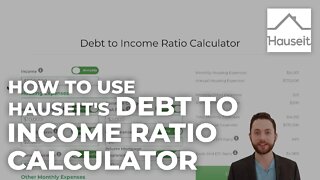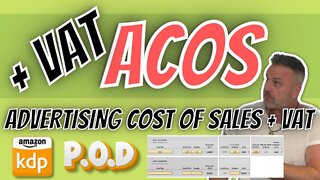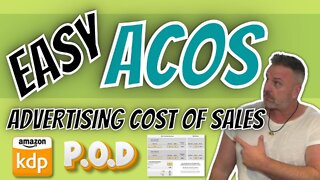How to Use Hauseit's Co-op Tax Deduction Calculator
Co-op Tax Deduction Calculator: https://www.hauseit.com/co-op-maintenance-tax-deduction-calculator/
Save 2% When Buying in NYC: https://www.hauseit.com/hauseit-buyer-closing-credit-nyc/
Hey everyone! In today's video we will show you how to use the Hauseit co-op maintenance tax deduction calculator. I'm Nick at Hauseit, check out our website https://www.hauseit.com to save money when buying or selling real estate here in New York City. So, let's get started.
First things first, if you're not already on the calculator page you can get here by typing in the following address into your browser, the spelling is up above. The other way to get here is by visiting https://www.hauseit.com, scroll to resources, calculators and select the co-op tax deduction calculator. The calculator itself allows us to compute two data points. One is the total annual co-op tax deduction dollar amount and the second item is the tax deduction percentage also known as the percentage of tax deductibility of monthly maintenance.
We've already done a simple example here and as you can see the total co-op annual tax deduction amount is calculated by summing up the per share amount of mortgage interest deduction with the per share amount of real estate tax deduction and multiplying that by the number of co-op shares owned. So, it's a simple equation we're basically multiplying three different items together and that gives us the dollar amount on the top right which is $5,607. So, if you were filing your income taxes and you qualify for a deduction you would input $5,607 into your tax return to take advantage of the deduction.
Now, the tax deduction percentage is calculated by taking that $5,607 figure and dividing that by the monthly maintenance times twelve, and that's how we end up with 49.18%. Now, let's ask a question. Why do co-op buildings have different percentages of tax adaptability? Well, the reason is that each co-op has its own unique property tax exposure and its own unique underlying debt structure or form of financing or other sorts of obligations on the debt side. One call for example might have similar real estate taxes to another but one of these co-ops might have a huge loan with high interest rate and perhaps the other co-op doesn't actually have any debt whatsoever. So, it makes sense that one them would be paying out more in mortgage interest which would translate into a higher percentage of co-op tax deductibility of monthly maintenance.
So, you may be asking where do I find the per share tax deduction amounts for real estate taxes and mortgage interest? Well, it's a very simple answer. Every year as a shareholder the accountant for your co-op will send out a form 1099 which provides you with the data points that you need. In front of us is an example of such a document. As you can see it gives you a per share amount for real estate taxes and mortgage interest. Now, there's a whole bunch of other information here which is pretty standard from year to year. It's just a bunch of disclosures disclaimers about how all of this works and to certainly contact your accountant for direct questions but the actual mechanics are very simple. You take these two numbers here and you dump them into the calculator which we've done already. Now if we want to go a step further let's take a look at the actual income statement of a co-op and try to understand where we see the outflows for mortgage interest and real estate taxes.
So, here we've taken a few screenshots from real financials for a co-op in lower Manhattan. The first one we're looking at here is a snapshot of a part of the income statement so you can see revenue at the top interesting things for you to see our items like the laundry income. They have a commercial rent from a building downstairs or rather from a unit downstairs and in the cost of operations you'll see under taxes that this building pays out a whopping $1.23 million dollars in taxes on an annual basis. So, this here the size of that line item is a large determinant of the percentage of co-op tax adaptability. Furthermore, under financial expenses we see here that there's an entry for $78,000 so this doesn't say exactly interest payments but based on the other items in the income statement. We think this one is most likely representing what the co-op pays out in mortgage interest on an annual basis we can learn more about the underlying debt of a bill by looking in the notes of the financial statement.
Save 2% When Buying in NYC: https://www.hauseit.com/hauseit-buyer-closing-credit-nyc/
NYC Buyer Closing Cost Calculator: https://www.hauseit.com/closing-cost-calculator-for-buyer-nyc/
.
.
Hauseit LLC, Licensed Real Estate Broker
Tel: (888) 494-8258 | https://www.hauseit.com
_
#hauseit #hauseitnyc
-
 6:14
6:14
hauseit
4 years agoHow to Use Hauseit's Debt to Income Ratio Calculator
105 -
![How to Use the Hauseit® NYC Home Sale Net Proceeds Calculator [Tutorial]](https://hugh.cdn.rumble.cloud/s/s8/1/A/g/V/j/AgVjf.0kob-small-How-to-Use-the-Hauseit-NYC-.jpg) 9:03
9:03
hauseit
4 years agoHow to Use the Hauseit® NYC Home Sale Net Proceeds Calculator [Tutorial]
51 -
 5:27
5:27
Ten Ton Online
2 years agoTax Basics For Online Business (Without DULLNESS!) @TenTonOnline
224 -
 18:52
18:52
Tax Fans
1 year agoWhat the Heck is AMT? Executive Tax Solution Helps You Get Your AMT Deductions.
8321 -
 7:05
7:05
Self Publishing with Stephen Peel
1 year agoACOS + VAT. ACOS for Amazon KDP and POD Products. Adding Amazon Advertising VAT or Sales Tax.
35 -
 6:34
6:34
PatrickCamuso
1 year agoNavigating the IRS's Latest Guidance on NFT Taxation: Here's What You Need to Know
9 -
 32:16
32:16
wealthwithoutwallstreet
9 months agoMaximizing Tax Benefits: Unveiling the Power of Cost Segregation Analysis with Geraldine Serrano
23 -
 6:17
6:17
Ten Ton Online
2 years agoHow Much Will My Small Business Make? Use This Simple Formula! @TenTonOnline
44 -
 8:40
8:40
Self Publishing with Stephen Peel
1 year agoEasy ACOS. ACOS for Amazon KDP and POD Products, with Excel ACOS Calculator.
2 -
 6:00
6:00
FineTimer
1 year agoHow to Cut Your Total Expenses by 25% or More
31